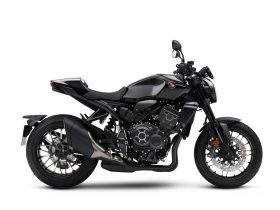Motorcycle mechanics boast one of the most hands-on careers you’ll ever come across. As a motorcycle mechanic, you get to service and repair motorcycles and other related kinds of automobiles including scooters, mopeds and dirt bikes. From handling custom repairs, to the replacement of damaged components, diagnosis of engine output problems, and the dismantling and assembly of parts to establish problem areas; the job areas that motorcycle technicians can specialize in are quite numerous. If you- therefore- fancy a career as a motorcycle mechanic, read on to find out what you need to succeed in this interesting career field.
Academic Background
Whether you’re looking to work at a small auto yard/motorcycle repair shop or with a large motorcycle dealership, chances are that your potential employer will need you to have a high school diploma. This minimum academic qualification requirement is used by employers as an assurance of your grasp of industry-relevant subject areas like reading, writing, business math, and science.
Training and Certification
While most auto shop owners/managers are usually willing to employ new staff and train them themselves, provided they possess a high school diploma, most motorcycle repair shops won’t usually give you a job unless you also have a post-secondary school certificate. Whether you seek an affordable program that at least covers the basic repair and maintenance training, or an advanced program with additional relevant courses like microcomputers and POS software management; there are plenty of institutional choices to pick from. These schools offer certification and licensing in motorcycle repair, some even allowing you to specialize. You can undertake online research to establish which are some of the best motorcycle mechanic schools in your area. A good institution would be one that incorporates technological subject areas as mentioned above, while also allowing you to specialize in your area of interest.
Technical Skills
You’ll need a good grasp of certain key technical aspects in order to gain your customers’ respect as a good mechanic. Most of these skills you can usually learn from the aforementioned post-secondary training. Having good troubleshooting skills, for instance, is important in enabling you to determine the underlying issues in damaged motorcycle parts and deciding on the appropriate course of action. It also entails equipment knowledge, as you’ll need to know what are the best tools to use in fixing certain specific motorcycle issues.
Cognitive Skills
An individual with great cognitive skills is better-positioned to succeed in this business, as they come in handy in a variety of work situations. For instance, if you’ve got advanced critical thinking skills , you’re more likely to reason out the more appropriate course of action for a problem, having figured out the pros and cons of each possible alternative. Other crucial cognitive skills in this field may include complex problem solving skills, analytical thinking skills, and your ability to pay attention to detail.
Technological Skills
While not entirely a necessity, having good technological skills puts you at a competitive advantage over other motorcycle mechanics, potentially helping you to attract higher pay. Knowledge of Point-of-Sale (POS) software database management- for instance- means that you can effectively handle customer information in a big auto yard that juggles numerous customer requests per day.
While the aspects mentioned above are not the only ones you’ll need to consider before beginning a career in motorcycle repair, they’re the most important. It’s also important to note that some of these skills can actually be picked up as you go along, as even some of the most successful motorcycle repair technicians didn’t begin with all the knowledge they’ve got now.







